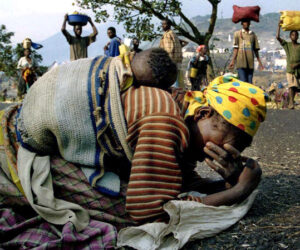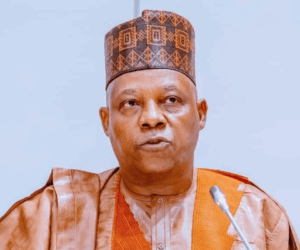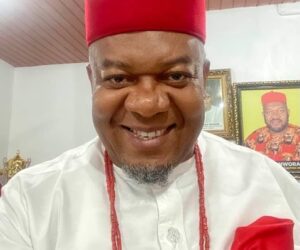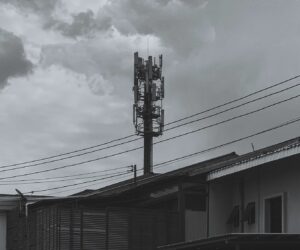“…the greatest trick that Tinubu ever pulled was convincing the country that he was unbeatable.”
In 2018, a private jet cut through the night from Dublin and landed in New York. On board was Conor McGregor, fighter, showman, and a man addicted to noise and vengeance. Hours earlier, he had learned that his teammate, Artem Lobov, had been humiliated by the then-UFC lightweight champion, Khabib Nurmagomedov.
SPONSOR AD
McGregor’s code of loyalty could not wait for a sanctioned fight. So he gathered his entourage, boarded a plane, crossed an ocean, and stormed the loading bay of Brooklyn’s Barclays Center.
Amid the flash of cameras and the shouts of bystanders, McGregor hurled a metal cart at the window of Khabib’s team bus. Glass shattered. Fighters bled. The internet erupted. It was an ambush, a spontaneous act of rage that mistook spectacle for justice.
Subsequently, McGregor was arrested, and the UFC condemned him. The story became a global sensation that built anticipation for their eventual title fight in ways no marketing campaign could. The chaos drew more attention to both men, but the narrative, inevitably, favoured one more.
Fast forward to today, and looking back at McGregor’s actions, if you strip away the spectacle of a street fight, what remains is something deeply human, impatience. The refusal to wait for the ring, the referee, and the rules. In his rush to restore his flawed, but wounded sense of order, McGregor violated the very arena that would have given a fight with Khabib legitimacy. That same impulse, that hunger to strike before the bell, echoes today in Nigeria’s latest flirtation with political recklessness.
The recent allegations of a coup attempt involving 16 military personnel were not the acts of patriots. They were the acts of opportunists who, like McGregor, confused disruption with courage.
Historically, Nigeria’s coups have been notoriously self-serving. They often arrive cloaked in the language of salvation. Their architects usually speak of moral urgency, of rescue, of redemption, of the need for intervention. But once you peel away the slogans, what remains are small egos wrapped in altruism.
Every coup begins with a whisper that grows into justification. The system is broken. Time is running out. People are suffering. And while all these things remain painfully true, there are predetermined guardrails in our laws and Constitution that exist precisely to hold us back from the edge. They are the lines drawn not to protect leaders, but to protect the people from the chaos of unrestrained power. Because when those guardrails collapse, even good intentions can turn into tyranny overnight.
In a system that is one part diverse and one part broken like Nigeria, true reformers understand that legitimacy is earned through process, through the slow, grinding work of persuasion and law. Coup-makers, on the other hand, crave immediacy. They attempt to burn down the house to prove that it needed renovation, and in doing so, they leave the very citizens that they claim to protect stranded in the ashes of their ambition.
Of course, there must be urgency. Nigerians are right to demand accountability from President Tinubu and his All Progressives Congress (APC). His administration has failed spectacularly on nearly every index that matters, inflation is suffocating households, the naira has collapsed, unemployment festers, poverty deepens, insecurity spreads, the power grid crashes at will, and hope, our most stubborn national resource, has run out. From Abuja to Zamfara alike, families now ration their meals because they are afraid of tomorrow.
But the urgency to fix Nigeria must not turn into anarchy. Yes, in the urgency of now, the elections that are about 16 months away may seem like an inconvenience, but in the scheme of things, schedules and order are designed to preserve continuity and prevent chaos.
And yet, I understand the temptation. When hunger outweighs hope, patience begins to feel like punishment. For many Nigerians, given the conduct of INEC and the judiciary since this administration came into power, elections no longer feel fair. They have waited for the bell to ring, only to discover that the referee is on the payroll of the fighter with the title belt. So yes, while impatience is dangerous, it is also a cry, the sound that people make when they feel unseen.
The tragedy of our current form of democracy is that our institutions have been hollowed out so completely that even lawful change feels almost impossible. Yet to attempt a coup barely two years into a presidency, however unpopular, is not strategy. It is self-sabotage. It elevates the failing incumbent into myth, a leader so formidable that only force can unseat him. Such impatience feeds his story, painting him as a man beyond democratic correction. And that, right there, is the tragedy. Because the greatest trick that Tinubu ever pulled was convincing the country that he was unbeatable, that he could not be defeated through lawful means, that his reach was too deep, his machinery too vast.
Power that fears waiting is power that fears losing. This is why, moving forward, the goal of everyone who loves Nigeria should be to prove that the system, though battered, still belongs to the people. And as tired as we may be, the next election is still the fight worth training for, because if we abandon the guardrails of the democratic process now, we do not merely lose faith in government, we lose faith in ourselves.
If Tinubu’s greatest trick was convincing us that he was unbeatable, then ours must be the refusal to believe him. The greatest trick we can pull now is reminding him that power belongs to Nigerians, and the people own the ring — the place where legitimacy must still be earned, and where, one day soon, the bell will ring again.
— Onemola writes from Abuja.
Advertisement
UPDATE NEWS: As a Nigerian, do you need access to US Dollars? It is now possible to live in Nigeria or Diaspora and constantly get paid in US Dollars. Find out how thousands are doing it daily.
IDEAL FOR Civil/Public servants, Engineers, Doctors, Entrepreneurs, IT Experts/Software Developers, Top Bankers and more.








